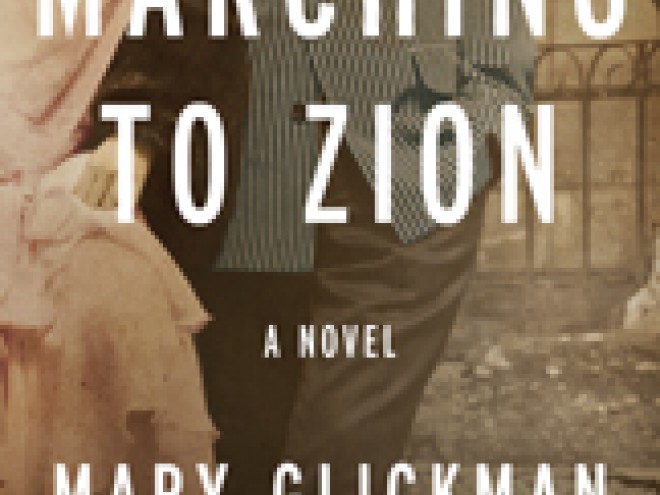The Sassaports of Guilford, Mississippi are an established Southern Jewish family thrown into the tumultuous civil rights movement of the 1960’s. They guard family secrets, struggle with racial and familial relationships, experience Northern vs. Southern sensibilities, and grow into change.
Thoughtful, kind, and gentlemanly Jackson Sassaport is the central figure of Home in the Morning. His coming-of-age story and later life serve as the book’s catalyst as he learns to attune himself to a triad of special and different women.
There is his demanding and very Southern mother, Missy; his courageous Northern wife, Stella, and Katherine Marie, the black woman who has imprinted herself on his heart and mind. Jackson must also deal with his fiendish brother, Bubba Ray, his stoic physician father, and the extended Sassaport clan. These characters interact with servants, friends, townspeople, rednecks, activists, and those Yankees, with their “typical provincialism.” Through them, Mary Glickman creates a story of love, hate, friendship, and healing.
Glickman, who was born Catholic, is a convert to Judaism. She now makes her home in the South, and skillfully reveals her understanding of Southern culture. She draws the reader into her storytelling through the use of backstory, history, and intriguingly believable and flawed characters. She captures the details, mood, and events of a place and time. Reading Home in the Morning provides a history lesson in black-white relationships, Southern Jewish culture, and the Civil Rights Movement.
The frequent flashbacks are temptingly offered and give clarity and understanding to the characters as their stories develop and bisect. There are no quotation marks in this book, but this does not distract or hamper the reader. In fact, it is hard to stop reading as the story begs to be unfolded.
Interview
by Renita LastMary Glickman: I don’t think I had specific role models in mind, but I’ve always been att racted to people who are capable of passionate devotions to causes and others. I admire those people with strong passions and high ideals. Perhaps they have a foolish and a courageous will to love and live honestly. In my mind, when such men and women come together and come up against life’s cruel realities, that’s when you have great drama born. Sometimes they’re crushed, but they retain their nobility and sometimes they succeed. I love people like this.
RL: Your book titles are taken from spirituals. Why?
MG: One of the reasons I use spirituals for the titles is that, for me, it emphasizes the connection of Jewish and African-American lives in the South as well as their being an important cultural touchstone. Jackson tells Li’l Bokay on their fateful truck ride together that, “You can’t grow up in the South without learning a spiritual or two.” That’s pretty much true. There are no set in stone lyrics for spirituals. Traditionally they are meant to be an improvisation on a theme where a worshipper is supposed to get up and burst into song with his own soul-felt imprint on the lyrics. This aspect of spirituals also impressed me when talking about a culture that is fixed in many ways, a culture obsessed by history and how an individual comes to live independently within it. That resonated for me. In the spiritual, Home in the Morning, the singer takes old sins, puts them on the shelf, and shakes himself and that rings to me of the Old South-New South transition.
RL: Why are the themes of love, family, friendship, and loyalty so important to you?
MG: Without loyalty love is meaningless. As far as I’m concerned it’s a cardinal virtue. To be loyal requires self-abnegati on and courage. It’s not the same thing as even being 100% faithful or supportive. But loyalties conflict and crises define which loyalty is stronger. That’s why I like to put my characters in extreme situations to test them. It’s very easy to delude oneself about one’s attachments until push comes to shove. Friendship is very important to me. One thing I want to talk about are relationships that last forever despite conflict and troubles along the way. Family members die, spouses die, and you are left with your friends. You need friendships for a life well lived.
RL: Your books beautifully evoke time and place through abundant descriptive language and detail. How important are Southern speech and storytelling in your writing? Is there any specific reason you don’t use quotation marks?
Renita Last is a member of the Nassau Region of Hadassah’s Executive Board. She has coordinated the Film Forum Series for the Region and served as Programming and Health Coordinators and as a member of the Advocacy Committee.
She has volunteered as a docent at the Holocaust Memorial and Tolerance Center of Nassau County teaching the all- important lessons of the Holocaust and tolerance. A retired teacher of the Gifted and Talented, she loves participating in book clubs and writing projects.




